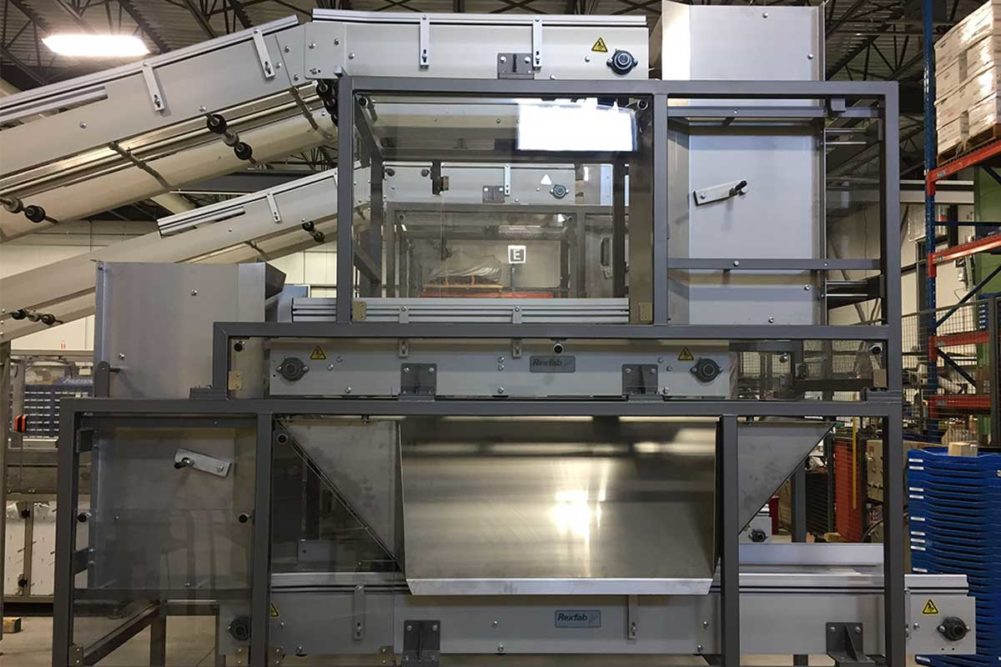Washing and drying systems may make sanitation easier and more efficient, but they tend to take up a chunk of a bakery’s footprint. This fact has bakeries also revisiting their tray handling systems to make them flow more efficiently. As bakers have become more concerned with food safety, they’ve had to make room for new or redesigned tray or basket handling systems.
“The motivation for basket washing has been a complement for basket handling,” said Patrice Painchaud, vice-president, sales and marketing, Rexfab. “Basket washers take up a lot more space, and you need to redo your whole basket handling system.”
To help bakery manufacturers optimize floorspace, Apex Motion Control implements the use of vertical designs with its tray and basket handling systems. “The Tray Stacker was designed with Vital Manufacturing in order to provide a solution for the growing concerns of expensive and limited floor space in bakeries,” said Rob Antonides, founder of Apex Motion Control.
In addition to using vertical space, the Tray Stacker automatically rotates baskets from 90 to 180 degrees to help protect the products and optimize stacking.
Tray and basket handling systems that feed the washing systems also prep these implements for optimal cleaning. “Before you send the basket inside the washer, you have to get rid of the dry debris or residue that comes back from the distribution network,” Mr. Painchaud said. “Very often, you’ll have the piece of cardboard, a paper cup, a random plastic back that was left inside of the basket, so you have to have a dingy to dispose of dry residue before the basket can enter the washer.”
[Related reading: Trays, baskets can be a weak point in food safety]
To address this need, Rexfab offers two types of trash dumps. One system inverts the baskets so dry residue drops out. The other sends the tray or basket through an S-shaped conveyor that also inverts the basket.
While tray suppliers are striving to make them not only easy to clean but also durable, handling systems still have to contend with broken baskets. Automation relies on uniformity, and it’s important that a handling system catch any damaged baskets before they enter the washer. Otherwise, the system can fail. Even if a handling or washing system isn’t disabled from a broken basket, a damaged one can compromise a product-filled stack.
“It creates a pile that will eventually collapse because of that broken basket,” Mr. Painchaud said. “We’ve seen that, and the way to circumvent it is to pick up that broken basket early in the system rather than letting it go through.”
Rexfab’s machines are designed not to break down if a compromised basket is inserted into the system, but it will stop. “The machine will pop an alarm, and the operator can then free the broken basket and start the system again,” Mr. Painchaud said. “We’ve designed the machine so it’s not going to break itself. You can dispose of a $15 basket as opposed to breaking a $100,000 machine.”
From tray and basket design to handling and washing and drying, bakers can keep the outside world out of the bakery. With the high stakes of FSMA and the way word travels fast in consumer culture, it’s critical that bakers control all variables.
“Any cross-contamination or unsanitary practice could affect your products and harm someone consuming them, which will affect your entire business,” said Kevin Quinn, sales manager, Douglas Machines Corp.
This article is an excerpt from the February 2020 issue of Baking & Snack. To read the entire feature on trays and baskets, click here.





